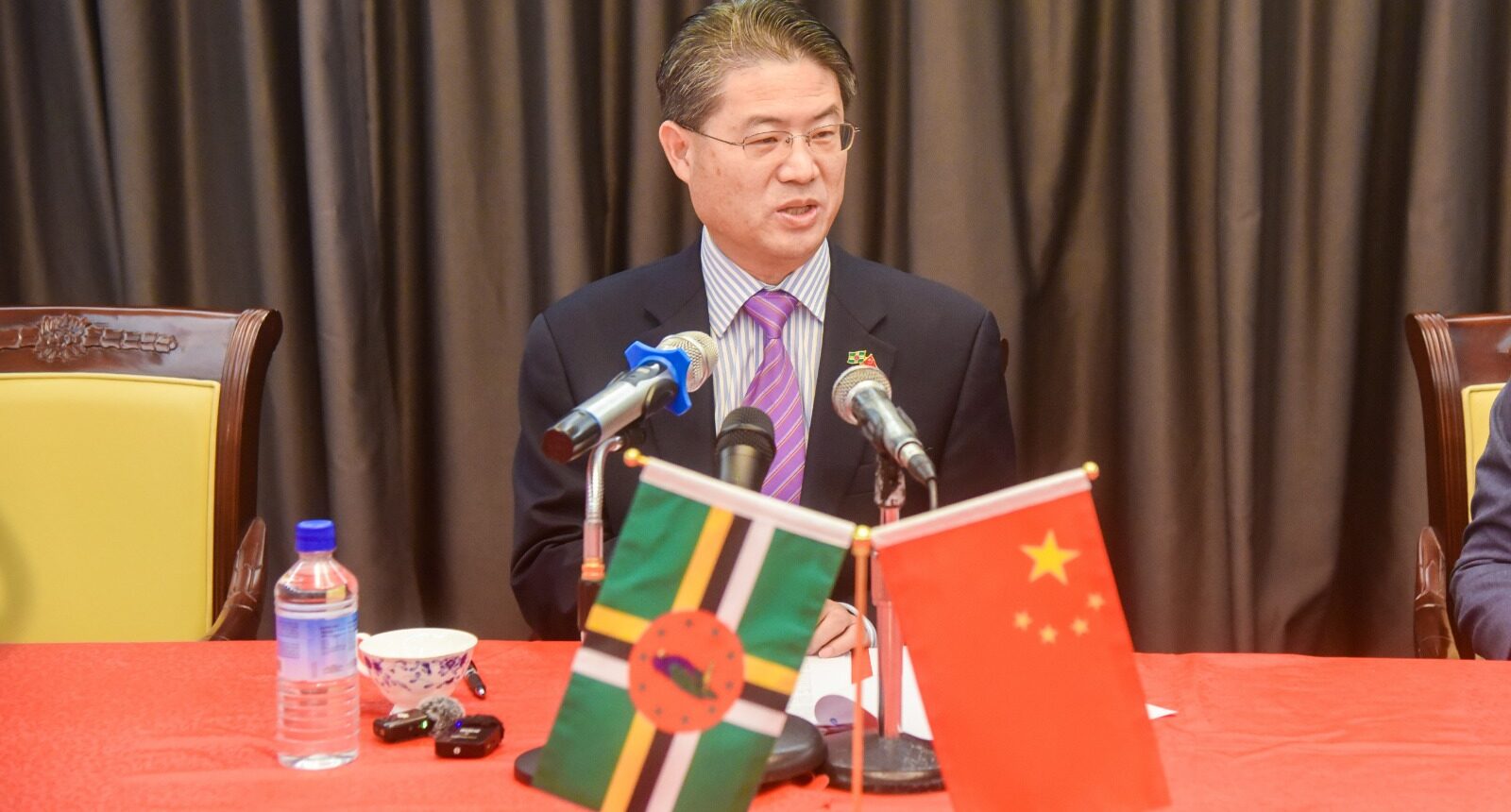Copyright dominicanewsonline

China’s Ambassador to Dominica, His Excellency, Ambassador Chu Moaming, is reporting a successful conclusion of the Fourth Plenary Session of the 20th Central Committee of the Communist Party of China (CPC), recently held in Beijing. He made the announcement during a press briefing held at the Chinese Embassy in Morne Daniel recently. “On October 23, the Fourth Plenary Session of the 20th Central Committee of the Communist Party of China (CPC) concluded successfully in Beijing,” he said. “The major outcome of the Session was the deliberation and adoption of the Recommendations of the Central Committee of the Communist Party of China for formulating the 15th Five-Year Plan for Economic and Social Development.” Since 1953, China has formulated 14 Five-Year Plans. Under the guidance of these Plans, China has created development milestones that have captured the world’s attention. According to the Ambassador, this year marks the conclusion of the 14th Five-Year Plan period. “During this period, China has seen its GDP surpassing RMB 130 trillion and breakthroughs in such emerging industries as artificial intelligence and new energy,” he explained. “ The ‘world’s factory’ has become the global innovation powerhouse. China is committed to high-standard opening up.” Moreover, he noted that China further shortened the negative list for foreign investment, and its overall tariff level has been cut to 7.3 percent. “We forged high-quality Belt and Road cooperation ties with more than 150 countries and over 30 international organizations. China’s contribution to global economic growth has stood at around 30 percent, making it a key driver and source of growth for global development,” Ambassador Chu stated. He went on to add that next year will mark the first year of the 15th Five-Year Plan period. “At present, the world is witnessing intertwined changes and turbulence, with unilateralism and protectionism on the rise, and hegemonism and power politics posing growing threats,” he remarked. “The international economic and trade order is facing severe challenges.” Ambassador Chu continued, “In recent months, we have even seen certain countries going against the trend of the times, taking actions that seriously threaten peace and stability in the Caribbean region. Against this complex and evolving international landscape, China’s 15th Five-Year Plan sends out a strong message that the consistency of China’s policy and its steady economic growth and development prospect provide valuable certainty to this volatile world.” He said that looking ahead to China’s development goals for the next five years, it is important to view them within the broader context of the country’s long-term development trajectory. “Under the strong leadership of the Communist Party of China (CPC), China has always pursued clear and consistent development objectives,” he emphasized. Furthermore, Ambassador Chu pointed out that in 2012, the 18th CPC National Congress set forth the Two Centenary Goals — to complete the building of a moderately prosperous society in all respects by the centenary of the CPC in 2021, and to build China into a great modern socialist country in all respects by the centenary of the People’s Republic of China in 2049. He also mentioned that the first of these goals has now been fully achieved, and China is advancing with resolve toward the second centenary goal. “In 2022, President Xi, in his report to the 20th CPC National Congress, outlined a two-step strategic plan for building a modern socialist country in all respects — with the first stage (2020–2035) aimed at basically realizing socialist modernization,” he stated. “This 15-year period corresponds to three consecutive Five-Year Plan cycles, and the upcoming 15th Five-Year Plan period will serve as a crucial stage that links past achievements with future progress — a period for laying solid foundations and making all-round efforts toward the long-term vision.” He revealed that by 2035, when socialist modernization is basically realized, China’s economic strength, scientific and technological capabilities, national defense capabilities, composite national strength, and international influence will all be markedly stronger. “China’s per capita GDP will be on a par with that of a mid-level developed country, and Chinese people will live better and happier lives,” Ambassador Chu stated. “ In line with this overarching vision, the Fourth Plenary Session set forth seven main objectives for China’s economic and social development in the next five years: significant achievements in high-quality development; substantial improvements in scientific and technological self-reliance and strength; fresh breakthroughs in further deepening reform comprehensively; notable cultural and ethical progress across society; further improvements in quality of life; major new strides in advancing the Beautiful China Initiative; and further advances in strengthening the national security shield.” Moreover, he said, over the next five years, China will strengthen strategic alignment with Belt and Road partner countries and better coordinate and manage cooperation programs. “We should enhance connectivity in terms of both infrastructure and rules and standards, and foster closer bonds with the people in these countries. We need to refine the multidimensional network connecting partner countries and advance both major signature projects and small and beautiful public wellbeing projects,” he said. “We should deepen practical cooperation in the areas of trade, investment, industrial development, and people-to-people exchanges and launch new cooperation initiatives across fields such as green development, AI, the digital economy, health, tourism, and agriculture.” Ambassador Chu indicated that over the next five years, China will press ahead with the critical battle against pollution and the drive to upgrade ecosystems. “We should follow a holistic and systematic approach to the conservation and improvement of mountain, water, forest, farmland, grassland, and desert ecosystems and coordinate efforts to advance major projects for protecting and restoring key ecosystems,” he noted. “We should also move faster to develop a new type of energy system and accelerate the shift to eco-friendly production practices and lifestyles.” He added, “China will also work actively and prudently toward peaking carbon emissions, including implementing controls over both the total amount and intensity of carbon emissions, pushing ahead with retrofitting for energy conservation and carbon emissions reduction, working toward reaching peak consumption of coal and petroleum. We should develop distributed energy sources and build zero-carbon factories and industrial parks. We should improve the working system for climate change adaptation to bolster our ability to respond to climate change, especially extreme weather conditions.”



